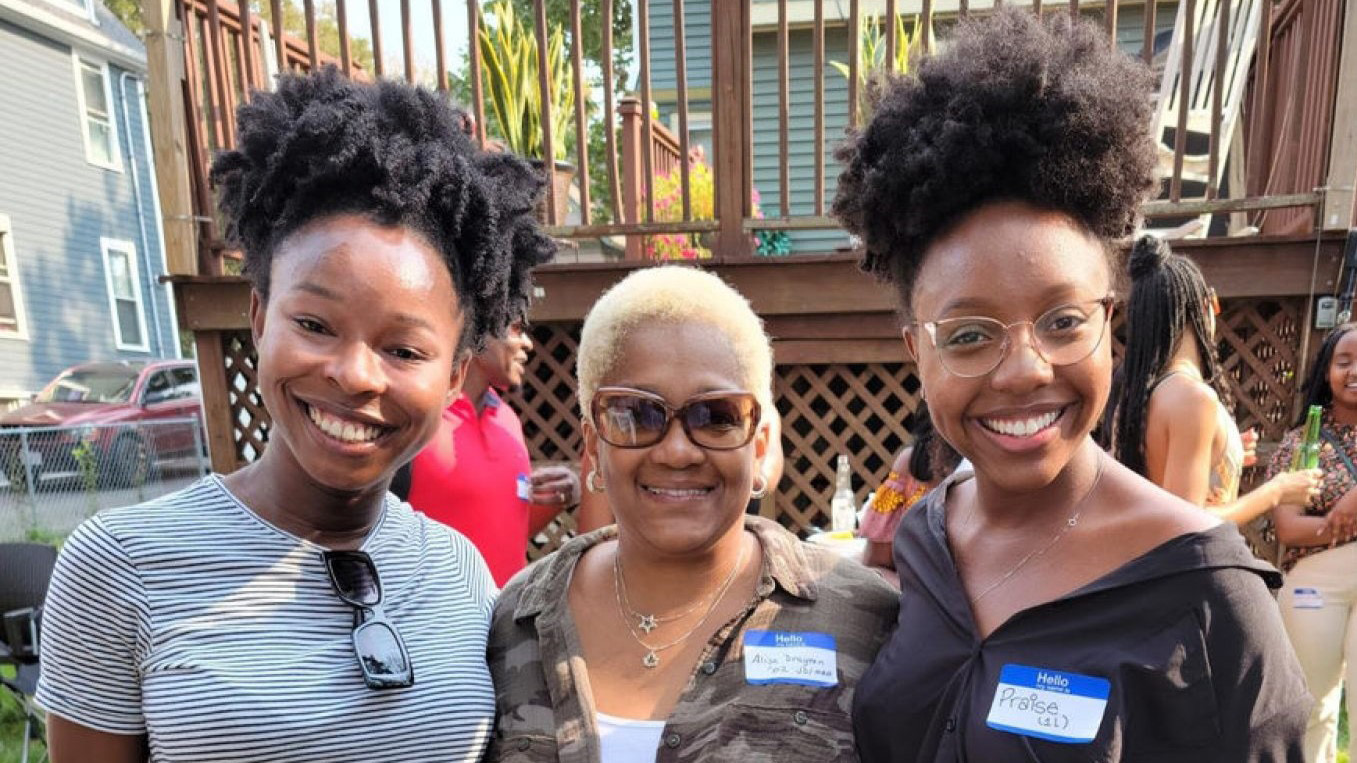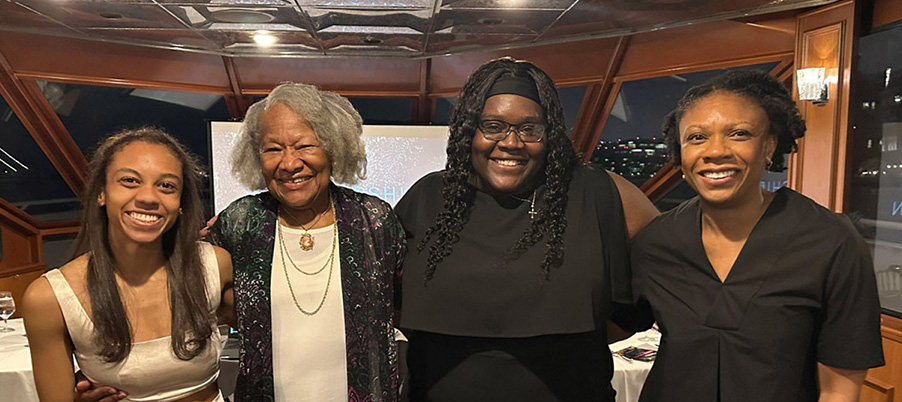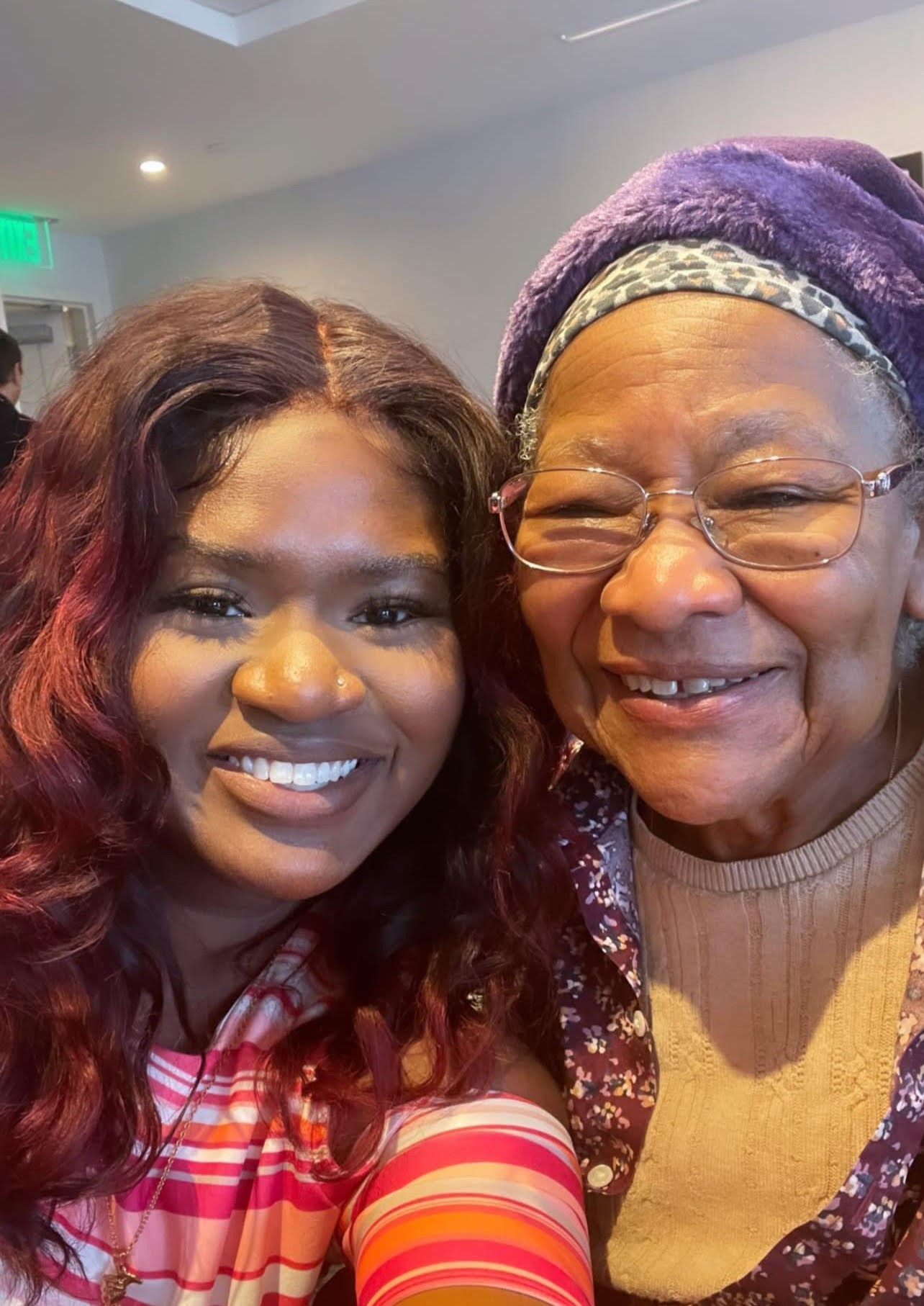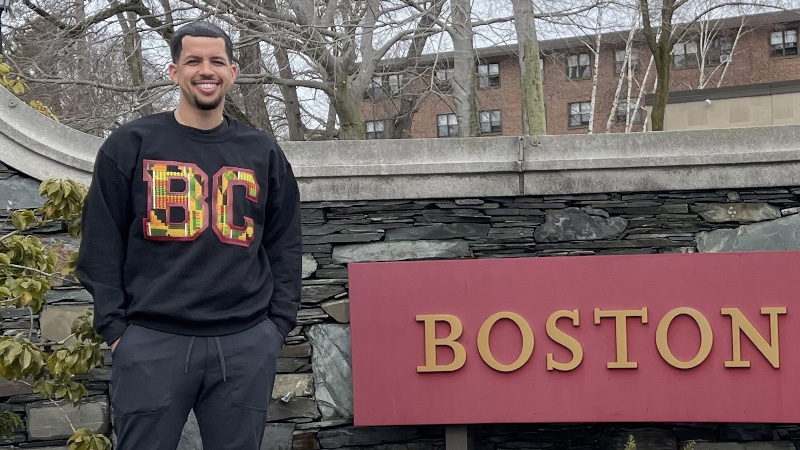Students and alumni connect and celebrate together each year at the Ruth-Arlene Howe Heritage Banquet.
Alumni Impact
In 1985, a group of alumni convened at the Brookline, MA, home of Professor Ruth-Arlene Howe '74 to establish a formal network of Black BC Law graduates. Longtime law school dean Richard Huber was retiring, and this cohort was dedicated to maintaining the progress that had occurred during his tenure. The group felt it was vital to formally commit to alumni involvement in the continued admission of Black students, as well as to formalize a commitment to ongoing participation in policy- and decision-making at the law school. Thus, the BC Law School Black Alumni Network (BAN) was born. BAN set forth a mission that has three primary and interlocking goals: facilitating the admission, retention, and support of Black students; advocating for the hiring and retention of Black faculty and staff; and sustaining and growing a robust and dynamic Black alumni community.
Alumni Profiles
Mentorship & Support
BAN members tell story after story of other Black BC Law alumni encouraging them to join the legal profession, providing guidance during the admissions process, and sharing the joys and challenges of their own law school and career experiences. Common memories include having a home-cooked meal at Professor Ruth-Arlene Howe’s home or receiving an encouraging phone call from a dedicated alum. One of the main topics at the monthly BAN meetings is continuing this work of recruiting, retaining, and creating a culture of belonging for Black BC Law students. From individual phone calls to newly admitted students to custom BC sweaters for each new BLSA 1L to mock interviews for jobs, BAN members contribute to making the law school a place where students can thrive.

BC Law students Tyler Barton ‘24 (left) and Praise Bartholomew ‘24 (right) connect with alum Alisa Drayton ‘02 (center).
Imposter syndrome creeps up on many people in academic settings, and the stresses of juggling classes, extracurricular activities, and other obligations can quickly compound. Students and alumni speak openly about how law school can be challenging and isolating, particularly for students of color who often aren’t well represented in the classroom. Black Alumni Network (BAN) president Arianne Waldron ‘14 recalls this being particularly true around 2018, when enrollment of Black students had fallen. The numbers were unacceptable, and BAN members, then-Dean Vincent Rougeau, and Dean of Admissions Shawn McShay refused to let them remain at that level. A significant part of the challenge was addressing student questions about whether BC Law and Boston itself would be places where they would be seen and loved and supported. Devoted alumni have been a key means of getting the message out that the answer is “yes”!
“ We had to kind of dispel this idea that Boston is hostile to Black people. That there is a community here waiting for them and excited to welcome them. . . I was able to stand on the fact that I’ve been here my whole life. I own a business here. I have a tavern in Roxbury. And we exist. And we are vibrant. And we are providing spaces for joy and kind of cultivating the culture. ”
BAN pairs all BLSA 1Ls with an alumni mentor based on considerations like shared hometowns, undergraduate institutions, practice areas of interest, and hobbies. This allows for one-on-one relationships to grow in tandem with group activities like BLSA events and the annual end-of-summer BAN/BLSA Welcome BBQ. These individual and group pipelines provide tips not only for academic success but also on everyday needs like good barber shops, African hair-braiding salons, and locating food from one’s homeland. Mentor and alumni connections also help tremendously with job-hunting. BAN’s ranks include judges, academics, government and nonprofit lawyers, and attorneys at all types and sizes of law firms. Consequently, it is a rich career and referral network for students who are job-hunting and determining their best professional path, as well as alumni thinking about career changes and advancement.

Cultivating Leaders
Black alumni from BC Law use their law degrees in almost every imaginable capacity: judges, academics and professors, associates and partners in firms of every size and practice area, prosecutors, defense attorneys, impact lawyers at organizations like the NAACP, non-profit executives, government agencies, general counsel, and political leaders. One of the broad goals of the Black Alumni Network (BAN) is to grow Black lawyer leadership across the profession and to cultivate lawyers committed to social and economic justice, regardless of any particular work setting.
Due to factors like longtime formal barriers to entry and persistent wealth disparities, only around 5% of lawyers in the United States are Black, far fewer than the 13.5% of folks who identify as Black in the total U.S. population. This means clients often do not see themselves reflected in their lawyers and judges, and that Black people are not properly represented at many levels of policy- and decision-making. One of the challenges of bridging those gaps is the soaring cost of a legal education. The cost of attending law school surpasses the means of an increasing number of students. It is crucial to recognize that a disproportionate burden of student debt falls on Black law graduates, coinciding with a disproportionate number of Black individuals facing unmet needs for legal representation. BAN created a scholarship fund that aims to alleviate this burden from both sides.

Professor Ruth-Arlene Howe ‘74 and Rosaline Valcimond ’05 with scholarship recipients Haluwa Doherty ‘24 (left) and Reginé Cooper ‘24 (center right).

2022 scholarship recipient Berlindyne “Bebe” Elie ‘24 with Professor Howe at the 2023 BLSA Women's Empowerment Brunch.
In 1995, at the 10-year anniversary of the founding of the Black Alumni Network, BAN initiated a fundraising campaign, which has garnered generous contributions from numerous BAN members and other alumni and supporters over the years. At the February 2009 annual BAN meeting, the initiative was renamed the Ruth-Arlene W. Howe Black Student Leadership Initiative in honor of our beloved alumna, mentor, and leader, Professor Howe ’74. The Initiative's overarching goals are to identify, recruit, retain, and support Black students with demonstrated leadership potential at BC Law. In 2016, the scholarship was awarded for the first time to Taisha Sturdivant ‘16, who went on to practice affordable housing law and to work on diversity pipeline initiatives at Kirkland Ellis.
“ I was interviewing for my first summer internship, and the partner that was interviewing me told me how proud I should be to be a recipient of the Ruth-Arlene Howe Scholarship Award. He told me how she was his professor back in the day and about the magnitude of the impact her legacy has had on his career and his life in general . . . Even before I got to meet her in person, her reputation preceded her, and it was such a beautiful thing. ”
Each year, the BC Law School Scholarship Committee collaborates with BAN to award this scholarship to a BC Law student who demonstrates a commitment to the Black and/or African-American descent community within the law school or beyond campus. The scholarship decision-making process includes a representative designated by the BAN Board of Directors. Key considerations for the committee include a candidate’s financial need, academic record, and leadership activities that demonstrate engagement with and contributions to the Black African descent community. In this way, BAN hopes to nurture individuals who will use their legal training to bring about positive changes in society.
Alumni Snapshots





























